Continuing the 10th Session of the 15th National Assembly , on the afternoon of November 4, at the National Assembly House, General Secretary To Lam discussed and informed about a number of new points and important orientations in the draft documents to be submitted to the 14th National Congress of the Party.
Towards a legal system that is “easy to remember, easy to understand, easy to implement”
Before discussing in the Group on the draft document to be submitted to the 14th National Congress of the Party, speaking at the National Assembly hall, General Secretary To Lam suggested a number of groups of contents for delegates to discuss and clarify further.
The General Secretary made clear his comments on institutions and laws. Enacting laws is to manage society by law, to build a socialist rule-of-law state of the people, by the people, for the people, but in practice there is still a situation where "the law is correct but implementation is difficult," "it is clear in the parliament, but at the grassroots level it is difficult."
The General Secretary asked the delegates to focus on clearly stating: why are there laws, decrees, and circulars that are issued very elaborately and densely, but grassroots officials do not dare to implement them; businesses are struggling and struggling; people are confused and going back and forth. Where are there overlaps, where are there different understandings between ministries and branches, where are the powers delegated but people are forced to take responsibility beyond their control?
The General Secretary requested that we move towards a legal system that is “easy to remember, easy to understand, easy to implement.” The wording of the law must be concise, clear, not confusing, and not leave any room for abuse or evasion.
The policy must be able to measure its impact, control its risks, and especially create convenience rather than create additional procedures. A good law is not one that is well written, but one that is implemented.
Delegates need to clarify what orientations need to be supplemented and adjusted in the 14th Congress documents so that the law can truly come into effect. They must speak frankly to make direct amendments.
Regarding the building and perfecting of the Vietnamese socialist rule-of-law state, the General Secretary suggested that the delegates' opinions focus on the question: "Have we done enough so that every power is bound within the legal framework, operating within its authority, for its purpose, and in the interests of the people? Are there any gaps that make people feel "if they want it, they get it, if they don't want it, they don't"? Are there any situations where people have to "ask" for things they should "enjoy"? "If there is no complete answer, that is where the rule-of-law state is not complete. Building our rule-of-law state means building a strong state that does not abuse power; has discipline but is not far from the people; acts decisively but is still humane, convincing, and has dialogue. Such orientations need to be made clear in the documents of the 14th National Congress," the General Secretary emphasized.
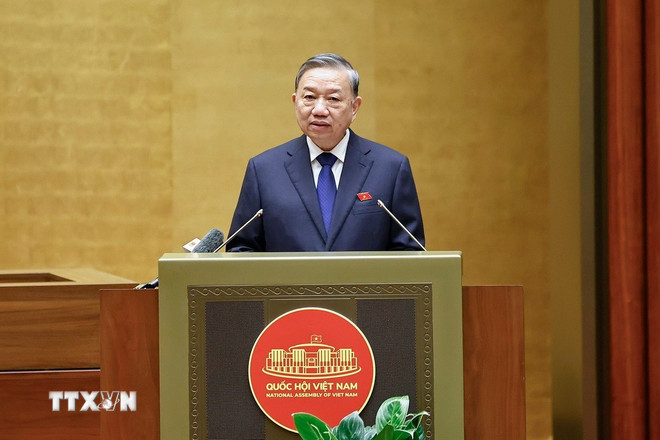
Regarding decentralization, delegation of power and organizational structure, the General Secretary suggested that two questions need to be answered: What should be decentralized, to whom, and under what conditions? And what will be the mechanism for responsibility, inspection and supervision?
“The delegates gave their opinions directly on this issue. Where subordinates can make decisions faster and closer to the people than superiors, they must boldly delegate power. But delegating power does not mean “pushing down work” or “pushing down risks.”
Delegation of authority must go hand in hand with resources, human resources, tools and legal safety zones so that officials dare to act and take responsibility for the common good, not unjustly taking personal responsibility,” the General Secretary noted.
Regarding the two-tier local government model, this is a very new, very important, very sensitive content, directly related to the lives of the people and grassroots cadres. The General Secretary hopes that the delegates will give specific opinions: how should the two-tier model be designed so that people are not far from the government, and public services are not interrupted. Do not let the declaration of streamlining the apparatus create more layers of asking and giving in reality. Another important thing is what rights the grassroots government must have, what resources must it have for the task of creating development at the grassroots level.
What more to the legal corridor for this task. Along with that is the relationship between the three levels of government: central, provincial/municipal, and grassroots.
The three levels must be a smooth-running entity, sharing responsibility and supporting each other. Absolutely not three layers “passing responsibility to each other” so that the people run in circles.
The Party leads absolutely and comprehensively but does not do things for others, does not make excuses, and does not loosen up.
Regarding the organic relationship between the Party, the State, the Fatherland Front, organizations and the people, the General Secretary hopes that delegates will contribute more ideas: what mechanism for the Party to lead absolutely and comprehensively but not do it for him, not make excuses, and not be lax?
The Government manages and operates according to the law, and dares to take personal responsibility. The Fatherland Front and socio-political organizations truly become a trustworthy bridge between the Party, the State and the people.
People are not only beneficiaries but also participants, supervisors, critics, and companions. To say “people-centered” means designing a mechanism so that people have a real voice, real supervisory rights, and opportunities to participate in real issues.
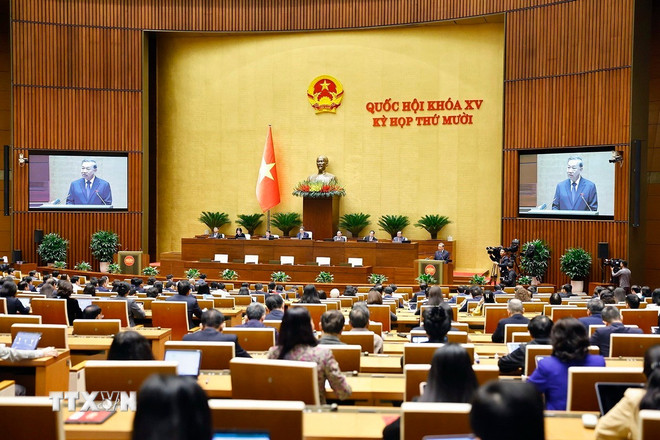
Regarding the Party's leadership and governing role in the legal system and in practical management, the General Secretary emphasized that our Party is the ruling Party. Ruling means taking responsibility before the people for the country's development and for the people's daily lives. Ruling is not only setting out policies, but also organizing implementation, checking implementation, and taking responsibility for results.
The General Secretary suggested that the documents submitted to the 14th Congress cannot just say "strengthening the Party's leadership" in a general way; they must clarify: The Party leads to ensure that all policies and laws truly serve the people, develop the country, maintain independence, sovereignty, territorial integrity, maintain socio-political stability, and preserve the great national unity bloc.
The Party leads to fight against sectoral and localism, group interests, negativity, corruption, and waste. The Party leads to protect those who dare to think, dare to do, and dare to take responsibility for the common good.
Regarding the spirit of innovation in thinking, innovation in working methods, innovation in national governance according to the motto of creation and for the people, the General Secretary asked delegates to contribute specific examples from the sectors, localities, and fields they are responsible for: where there are still cumbersome procedures that discourage businesses; where people are frustrated because they have to go back and forth many times without getting things done; where there are still "mechanisms to run."
We must state it directly without avoiding it. Only by looking directly can we correct those shortcomings and limitations. Regarding new points and breakthroughs, the General Secretary said that the Document Subcommittee has raised 18 new points, orientations considered to be breakthroughs, demonstrating the spirit of daring to innovate, daring to change the development model, daring to reorganize the apparatus and operating methods.
The General Secretary asked the delegates to answer two questions: Are the 18 new points sufficient? Are there any points still at the level of "policy," "orientation," "will be studied," while society is demanding specific answers, a clear roadmap, and clear responsibility?
According to the delegates, people who are close to the people, understand real life, and understand voters' thoughts, what issues have not been properly named in the documents, what knots are there that if not resolved now, in the next 5 years we will have to pay a higher price?
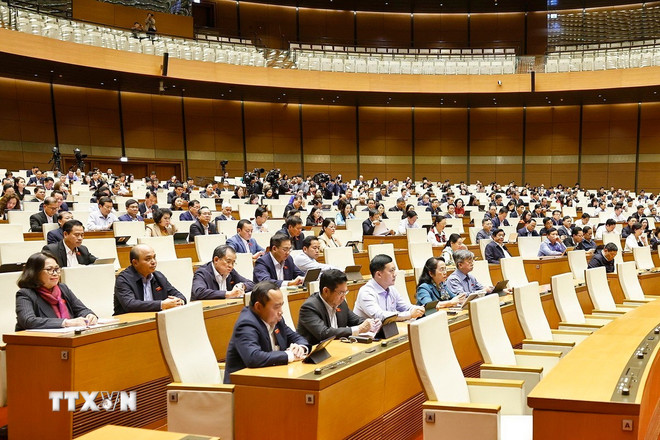
The General Secretary pointed out that the Congress Document is the original document. If it is clarified right now, the process of institutionalization, law-making, and implementation will be more convenient, more unified, and less confusing.
On the contrary, if the document is still general and incomplete, when it is put into law, it will lead to different understandings, different ways of doing things, and even "applications" according to individual understandings. Thus, the people will suffer the most.
The General Secretary emphasized that what the Party, the National Assembly, the Government and the people want has a very specific, very close and very simple common denominator: the country develops sustainably; society is orderly, disciplined, warm and humane; people are protected and given opportunities to rise up through their own labor; whoever does the right thing by law will be protected, whoever does wrong will be dealt with fairly, with no forbidden zones.
The General Secretary asked each National Assembly delegate to contribute as a representative of the people, and at the same time as a Party member and cadre with profound practical experience, to say what they really see, what they are concerned about, what they dare to take responsibility for; I believe that with their working experience, their close connection with voters, and their mettle, the delegates will do this responsibility very well./.
Source: https://www.vietnamplus.vn/tong-bi-thu-to-lam-goi-mo-7-noi-dung-cu-the-ve-gop-y-du-thao-van-kien-dai-hoi-xiv-cua-dang-post1074854.vnp


![[Photo] Ca Mau "struggling" to cope with the highest tide of the year, forecast to exceed alert level 3](https://vphoto.vietnam.vn/thumb/1200x675/vietnam/resource/IMAGE/2025/11/04/1762235371445_ndo_br_trieu-cuong-2-6486-jpg.webp)

![[Photo] Panorama of the Patriotic Emulation Congress of Nhan Dan Newspaper for the period 2025-2030](https://vphoto.vietnam.vn/thumb/1200x675/vietnam/resource/IMAGE/2025/11/04/1762252775462_ndo_br_dhthiduayeuncbaond-6125-jpg.webp)

![[Photo] The road connecting Dong Nai with Ho Chi Minh City is still unfinished after 5 years of construction.](https://vphoto.vietnam.vn/thumb/1200x675/vietnam/resource/IMAGE/2025/11/04/1762241675985_ndo_br_dji-20251104104418-0635-d-resize-1295-jpg.webp)
![[Photo] Ho Chi Minh City Youth Take Action for a Cleaner Environment](https://vphoto.vietnam.vn/thumb/1200x675/vietnam/resource/IMAGE/2025/11/04/1762233574890_550816358-1108586934787014-6430522970717297480-n-1-jpg.webp)



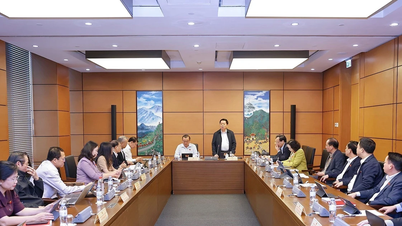
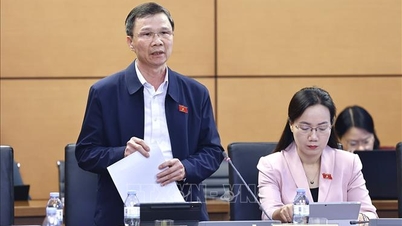






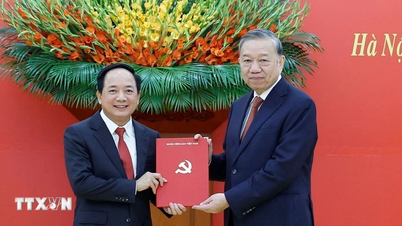
![[Photo] Prime Minister Pham Minh Chinh chairs the 20th meeting of the National Steering Committee on combating illegal fishing.](https://vphoto.vietnam.vn/thumb/402x226/vietnam/resource/IMAGE/2025/11/04/1762267178314_dsc-0115-jpg.webp)

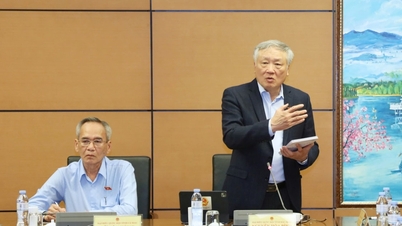
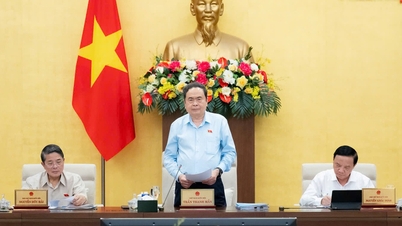





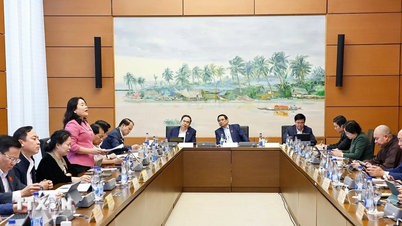



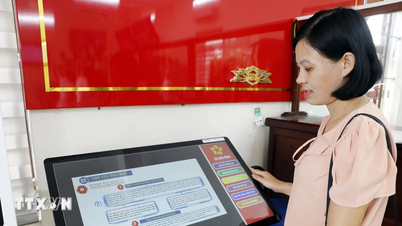























































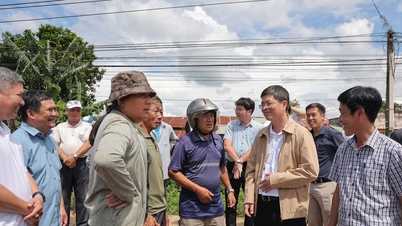















Comment (0)